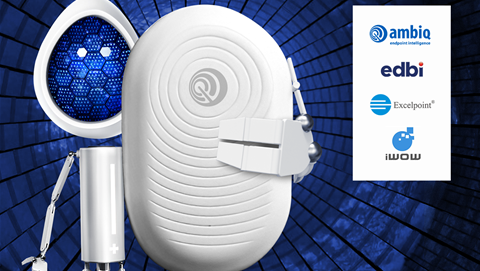Intel Corporation and Broadcom have demonstrated the first cross-vendor WiFi 7 solution with speeds greater than 5 Gbps (gigabits per second).
The trial used an Intel Core processor-based laptop with a WiFi 7 solution connected to a Broadcom WiFi 7 access point.
Intel and Broadcom have cooperated closely on WiFi interoperability testing for years.
According to the two companies, the WiFi standard promised to deliver up to five times the capacity available in WiFi 6 with estimated 100 times “worst-case” latency improvements in closed and congested environments.
WiFi 7 leverages new features including wider 320 MHz (megahertz) channels in the unlicensed 6GHz (gigahertz) spectrum, higher order 4K QAM data modulation, and simultaneous connections across multiple bands with multi-link operation and improved channel utilisation efficiency with multi-resource unit puncturing.
QAM or quadrature amplitude modulation is a modulation standard used by network operators when transmitting data.
According to Broadcom, WiFi 7, with automatic frequency coordination (AFC), extends the 6 GHz transmit range in both indoor and outdoor environments by using optimal spectrum allocation.
Intel said the benefit for a typical WiFi 7-enabled laptop was a potential maximum data rate of almost 5.8 Gbps. This is 2.4X faster than the 2.4 Gbps possible with the latest Wi-Fi 6/6E standard.
The demonstration was conducted by a joint team from Intel and Broadcom and presented by Intel Fellow & Wireless CTO, Client Computing Group, Carlos Cordeiro and Broadcom’s VP Wireless Connectivity Division, Vijay Nagarajan.
Broadcom expects the first WiFi 7 capable devices to be released commercially during the second half of next year.
WiFi 7 is expected to enable new product classes, including augmented and virtual reality (AR/VR), ultra-high-definition 16K media streaming, and super-responsive and reliable gaming, while supporting large numbers of connected devices in the home or office.
IDC’s Research Director for Connectivity, Phil Solis, said the new standard will allow WiFi “to continue to serve the most demanding applications in the consumer and vertical markets with the highest level of determinism yet”.
He added that interoperability testing between Intel and Broadcom will enable the development of products that can be used in the test beds for official WiFi Alliance certification testing.









